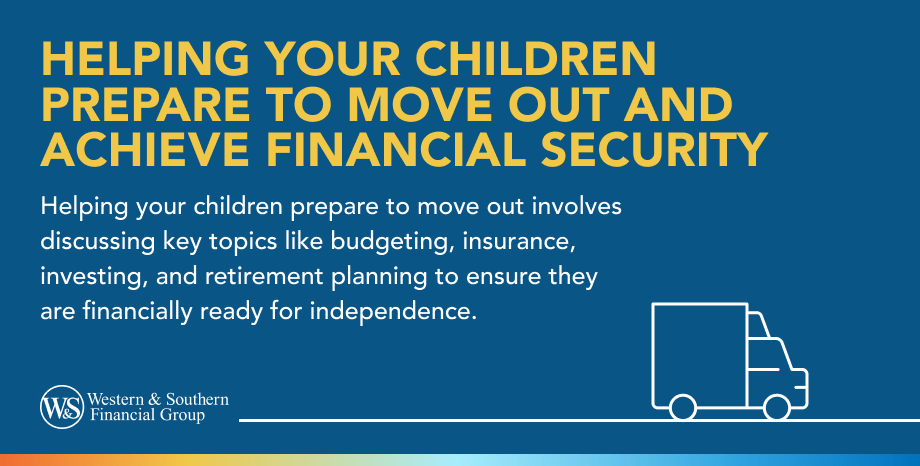

Table of Contents
Key Takeaways
- Choose the right time by considering your child's maturity, independence, your own readiness, and providing plenty of notice.
- Have multiple conversations to discuss logistics, finances, and emotions during this big transition.
- Teach financial literacy by covering budgeting, insurance, investing, retirement planning, and other money management skills.
- Offer guidance without control by providing advice and support without dictating decisions.
- Celebrate the transition as a joyful milestone into adulthood and independence.
Everyone flies the coop, but you want to help your children be positioned for success. Whether your child stayed home to work after high school, moved home after college, or returned home after living on their own, eventually you may wonder, "When are my children leaving home for good?" You may need to prepare yourself to have a conversation with them about moving out. Here are some tips to consider.
Preparing for the Conversation
1. Is This The Right Time?
Before bringing up the topic, think about why now is the right time.
- Is your child succeeding at work and ready to shoulder more adult responsibilities?
- Do they need a push to socialize more with their peers or live closer to them?
Perhaps you're ready for an empty nest — whether you want to downsize or just have the house to yourself.
2. When Will You Ask Them?
After developing your rationale, think about a time frame. It can take a few weeks or more to find housing and furnishings, and it can take longer than that to save enough money to cover the initial move-in costs.
Find a good time to raise the subject with your child, knowing it may require several conversations to cover the details and offer your assistance. Your child might feel nervous about moving out, or even angry that you've brought this topic up. On the other hand, they may feel grateful for the push if they weren't ready to make the move on their own. However they may feel, it's good to know exactly what needs to be discussed to prepare them for independence.
Helping Your Children Be Financially Ready
Part of preparing your children for leaving home is making sure they're financially ready. That doesn't mean handing them your credit card or telling them to send their bills home. Instead, it means helping them have financial literacy and a plan. Focus on discussing these key areas:
Basic Budgeting
Budgeting in your early 20s may be a different from budgeting in your 30s or budgeting to prepare for retirement. Your newly launched adult should have a budget that includes:
- Rent
- Transportation (car payments/insurance, ride-sharing or public transit)
- School loans
- Food
- Clothing
- Entertainment
- Utilities
- Investments
- An emergency fund
There are other categories as well, and it may be helpful to talk about how your child wants to spend their money or save for specific goals.
Buying Insurance
It's not exciting to spend money on insurance, and it can be hard for your child to allocate funds to something they think they'll never use. You can help them understand its importance. Their employer may provide health, disability or life insurance in full or at a discount, or may want to get insurance on their own. They can also consider additional insurance products such as renter's insurance or car insurance (if they own a car).
Investing
Investing for the future is difficult when your child is just starting out, especially with school loans and an early-career salary. Even saving a small amount each month or pay period helps develop the habit of saving and investing. Your child should understand how compound interest works, and why investing money now may pay off later. Comparing saving to "paying yourself first" may help encourage your child to build a solid financial future.
Retirement Planning
Retirement planning goes hand in hand with investing. When just leaving home, your child may want to make saving for retirement a priority over general investing. Share the various types of retirement plans with them.
- Traditional IRAs and 401(k) plans can be funded with pre-tax money
- Roth IRAs and 401(k) plans can be funded with post-tax money.
The right option for your child will depend on their financial situation. Some companies match employee contributions and provide educational seminars to help educate employees on the options.
It's a big, complex world for young adults just leaving home. But this is an important part of life that can help determine your child's future. A few well-meaning conversations can impact their financial well-being in a positive way.














